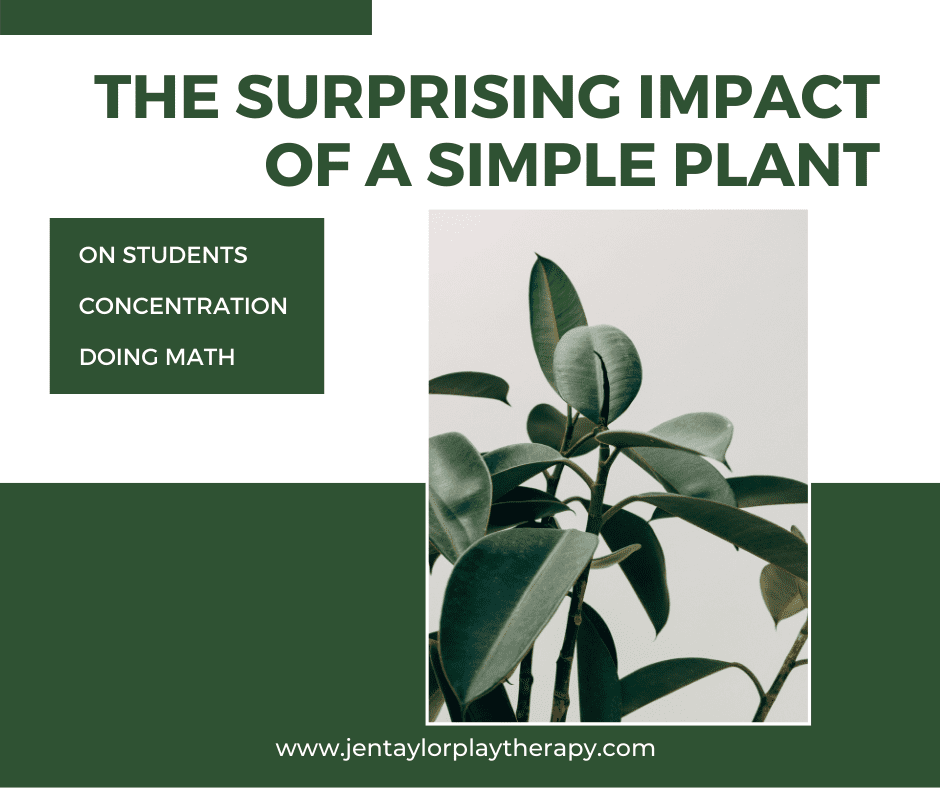Adding this to your study area might improve concentration! A surprisingly simple change just might improve your math scores
What happens when you add a simple plant to your study space? Researchers in South Korea set out to determine if having a plant in your study space would have a positive impact on concentration and mood. Learn what they found - and how to take this information and put it to use in your life.
Something to Consider When Prepping Your Study Space

In this study conducted in South Korea, a simple green foliage plant was selected - a 55x15 cm Scindapsus in a white pot, to be exact.
Students were placed 50 feet in front of this plant for part of the study and then in front of a blank, white wall for the other part of the study. They were given grade level multiplication and division problems and measured using EEG machines and self-report surveys on their mood.
The Background Research
Other research has already shown that having a window in your hospital room improves your recovery time. Patients with flowers or plants in their room request fewer pain medications. In a prior review, it was noted that even looking at a simple flower image reduces stress.
In this study, researchers noted that other research found that students with ADHD performed better on tests after taking a 20 minute walk on a nature trail.
Based on this knowledge of the benefits of plants and nature on mental health, a team of researchers in South Korea set out to determine if a single plant could make a difference in academic performance in math.
A Look at the Research
Students were specifically selected to control for as many variables as possible (so this research includes only right-handed students). Students fasted for two hours before the exam began to control for things like caffeine intake and the room temperature was carefully monitored. Nonetheless, the sample size was small - only 30 students ages 10-13 participated.
Students were given math tests in the presence of a small, green, foliage plant and also tested without the plant. The number of correct answers was measured in each environment. Their brain activity was measured via EEG readings. Students were also surveyed and asked questions about their emotional states.
Researchers found that concentration was significantly higher in MALE STUDENTS when math problems were completed in front of the plant.
Basically - they got more right! And the theta waves measured by EEG showed similar results.


Unfortunately, there was no significant differences in concentration in the female students. And it's difficult to say why that is.
However, both male and female students reported a feeling of "being relaxed" when in the presence of the plant.
Therefore, the presence of foliage plants in the space where the elementary students performed the intensive assignment led to positive effects on concentration and emotional condition.
Kim, S.-O., Oh, Y.-A., & Park, S.-A. (2020). Foliage Plants Improve Concentration and Emotional Condition of Elementary School Students Performing an Intensive Assignment. HortScience, 55(3), 378–385. https://doi.org/10.21273/HORTSCI14757-19
Put this study in the category of "worth a try."
Perhaps having a plant in your study space will help improve your concentration and overall mood. And maybe that sense of "being relaxed" helps you to get a few more math questions correct. It's a small study that seemed to work better with male students than female students....but it's an interesting experiment and a great reason to buy another plant 😉
If you found this helpful, subscribe to my mailing list for tips and strategies to help make the unmanageable or seemingly impossible feel a little more do-able! My focus is on actionable ways to thrive emotionally, excel professionally, and energize your own creativity.

Am I missing in your article the link to the study? I Googled all the details you gave but couldn’t find the study. Would you mind providing it? Thanks!
Yes, not sure what happened to the link, but the study can be found here https://journals.ashs.org/view/journals/hortsci/56/3/article-p324.xml